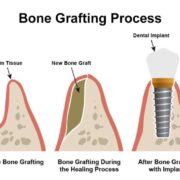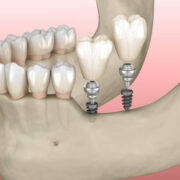Having dental implants is one of the best solutions for people looking to regain lost teeth and have a beautiful smile once again. Dental implants are titanium rods that are surgically inserted in your gums. Once the implant has integrated with your jawbone, it will be able to support a crown or an artificial tooth. Implant surgery can be considered one of the safest surgical procedures today. However, like any other medical intervention, dental implants do have some risks attached to them such as infection. If you’re thinking about getting dental implants in Singapore, there are some potential downsides that you should be aware of beforehand. This article takes a look at some of the potential downsides of having dental implants so that you can make an informed decision before moving forward with treatment.
Dental implant symptoms and side effects
There are a number of potential side effects and symptoms that may occur as a result of having dental implants. The following are a few of the most common ones: –
- Swelling or inflammation in your gums – This is one of the most common symptoms that people experience when getting dental implants. It occurs as a result of the body’s natural reaction to the foreign object that has been inserted into your gums. The swelling should go down within a few days and is completely normal.
- Bleeding – This is another very common side effect of having dental implants. The bleeding may occur during or after the procedure. It can be a sign that the implant has cut through the gums and reached the underlying bone.
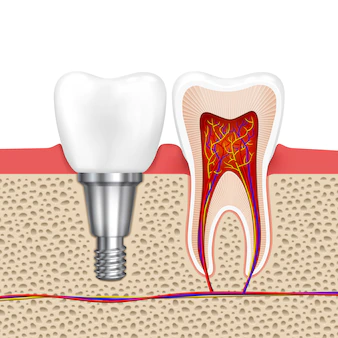
- Infection – This is one of the more serious side effects that can occur when getting dental implants. In rare cases, the gums may become infected, leading to increased swelling, pain, and redness. If you have dental implants, it’s important to maintain good oral hygiene (e.g. by regularly flossing and brushing your teeth) to avoid gum disease and bacterial infections.
- Dental implant displacement or loss – This is a potential side effect that occurs when the implant pops out or falls out of its position in the jawbone. While this is a rare side effect, it can occur if the implant was improperly placed or if the bone around the implant has not healed properly.
Risk of implant displacement or loss
As discussed above, implant displacement or loss is a potential side effect of having dental implants. It occurs when the implant pops out of its position in the jawbone. You should be aware of the fact that dental implants are not a guarantee against losing teeth. In fact, according to a study, more than 25% of people with dental implants have experienced at least one tooth loss within a 10-year span. The main reason why dental implants are not fail-proof is the fact that they are inserted into the jawbone, which is soft tissue. If the implant is not properly positioned, it’s likely to not integrate properly with the soft jawbone and can be prone to displacement.
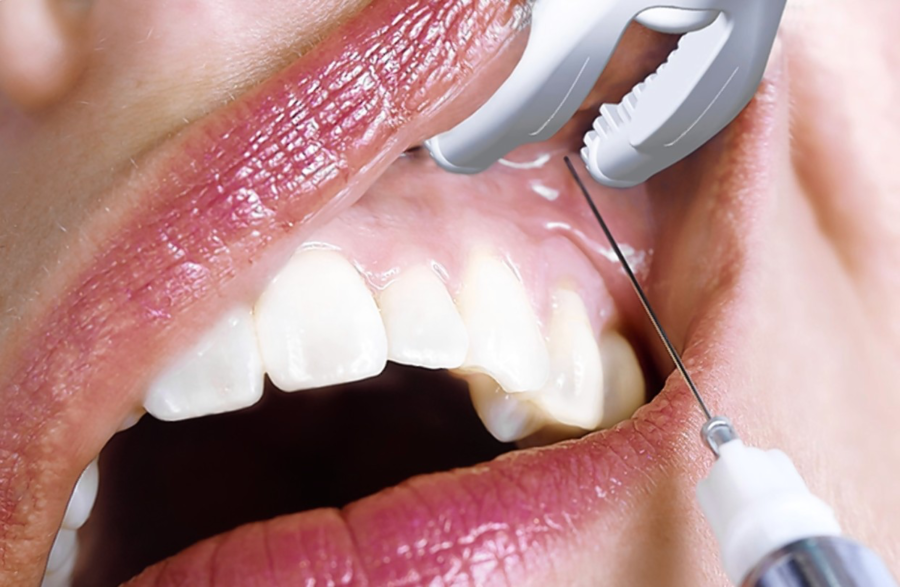
6 Adverse effects of dental implants
Infection
The invasion and growth of germs in the body. The germs may be bacteria, viruses, yeast, fungi, or other microorganisms. Infections can begin anywhere in the body and may spread all through it. If your dentist doesn’t clean the area thoroughly before placing the implant, bacteria may attack and cause infections. Dr. Chirag will prescribe antibiotics before the surgery to help kill any bacteria present in the area.
Injury to the gums, bones & blood vessels
The gums or blood vessels may get damaged during dental implant surgery. When that happens, it loosens the implant, injuring surrounding tissue. If you’re in constant pain or the implant has become loose, immediately consult Dr. Chirag Chamria.
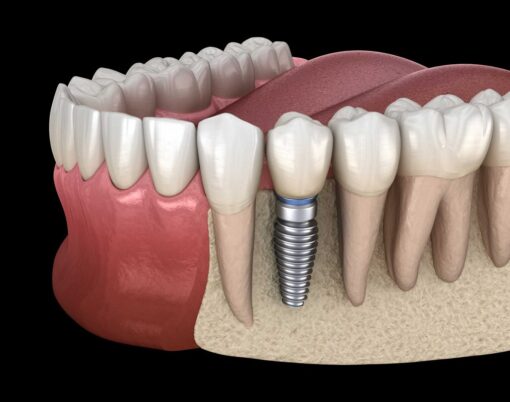
Nerve damage
If you experience numbness or a tingling response in the mouth, face, or gums, it could be the result of nerve damage. Consult Dr.Chirag Chamria to reduce the risk of nerve damage. He will need X-rays prior to the surgery to properly place implants and avoid damage.
Sinus problems
Misplacing implants in the upper row of gums can lead to sinus issues. An improperly adjusted implant can protrude into the sinus cavity and cause headaches and other sinus-related problems. X-rays help Dr. K figure out the most suitable location for implant placements to eliminate such issues.
Implant fracture
Implant fracture occurs when an extreme force on the implant is applied. If your implant fractures, you will need to make a new one. So, avoid chewing hard food to prevent implant fractures. Also, avoid clenching your teeth. Try to relax your jaw. You can even buy a night guard to prevent teeth grinding that damages natural teeth and implants.
Health conditions
Health conditions like diabetes and osteoporosis can impact the bones. You need a strong immune system and sufficient bone density for dental implant surgery. So prior to deciding or opting for this procedure, provide Dr. K with your full medical history and/or ask him if this is a smart choice for you.
Dental implant malfunction
Dental implants are a long-term solution, and while they are extremely reliable, there is still a risk of them malfunctioning over time. The risk of malfunction increases the longer you have the implants, which is why many dentists recommend replacing them after a decade or so. If you have dental implants installed, there’s a chance that they may stop working completely over time. That said, dental implants are extremely reliable and malfunction is a rare occurrence.

Dental decay around implants
Dental decay is a common problem among people who have dental implants. It’s also referred to as “marginal bone loss” or “marginal breakdown”. The main reason behind this is the fact that gum tissues surrounding the teeth are very sensitive, which makes them susceptible to bacterial infections. Most people with dental implants get the best results with a combination of implant and crown treatment.
Dental reconstruction abscess
This is a very serious problem that can develop around the gums or around the implant. It’s most likely to occur in the first few months after getting the implants but can also happen years afterward. When the implant is inserted, it cuts through the gums, creating an opening. This opening is prone to infection, resulting in an abscess. If an abscess appears around the implant, it’s important to see a dentist as soon as possible.
Summary to Implant infection
They are a great way to replace missing teeth and improve your smile. These dental implants are implanted into your jawbone, which is soft tissue. Therefore, there is a risk of the implant becoming dislodged or falling out completely. Another potential downside of dental implants is that they can promote tooth decay in your surrounding teeth. This is due to the fact that gum tissues are very sensitive and are therefore prone to bacterial infections.


